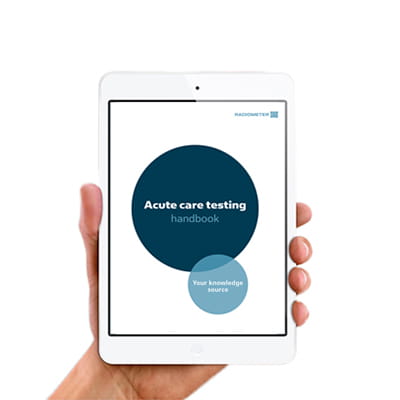Printed from acutecaretesting.org
January 2017
“Make a fist please” – challenging a common phlebotomy practice
Summarized from Lima-Olivera G, Guidi G, Salvagno G et al. Estimation of the imprecision on clinical chemistry testing due to fist clenching and maintenance during venipuncture. Clin Biochem 2016 (available online July 17 2016 ahead of print publication) http://dx.doi.org/10.1016/j.clinbiochem.2016.07.007
It is commonplace for clinical staff tasked with blood sample collection to ask patients to make a fist before venipuncture; it reportedly helps by making veins more visible. Patients may also be asked to maintain a clenched fist during the procedure.
This practice of ”fist clenching” is sanctioned in phlebotomy practice guidelines from both the World Health Organization (WHO) and Clinical and Laboratory Standards Institute (CLSI).
The results of this small study, which now challenge this practice, suggest that fist clenching immediately before and during venipuncture is a source of preanalytical error for a number of routine clinical chemistry tests.
Sixteen healthy adult volunteers were recruited for study. Two blood samples were collected simultaneously (within <1 min) from each volunteer; one from each arm. The first was taken without tourniquet and with the hand open and relaxed (no fist clenching).
The second, taken from the opposite arm, was also taken without tourniquet, but on this occasion the volunteer was asked to clench and open the fist six times immediately before venipuncture, and maintain the fist during blood collection.
Blood samples were collected to lithium heparin with gel separator bottles, and the recovered plasma samples were submitted for routine clinical biochemistry testing. This testing comprised a panel of 26 most commonly requested analytes.
The analyzer used allowed, in addition to the 26 analytes, measurement of three serum indices: hemolysis index (HI), icteric index (II) and lipemic index (LI). Comparing analyte results after no fist clenching with those after fist clenching revealed no significant difference for 18 of the 26 analytes. However, for the remaining eight analytes there was a statistically significant (p<0.05) difference.
Fist clenching was found to be associated with increase in aspartate transferase (+2.3 % p=0.023), calcium (+2.2 % p=<0.001), chloride (+1 % p=0.01), creatine kinase (+2.0 % p=0.003), magnesium (+2.3 % p=<0.001), potassium (+13.4 % p=<0.001), and sodium (+0.7 % p=0.001). Fist clenching was found to be associated with significant decrease in phosphate (–5 % p=0.014).
Fist clenching was also associated with significant increase (+28 % p=0.008) in hemolysis index. Icteric index and lipemic index were unaffected by fist clenching.
In discussion of their results the authors highlight a number of previous studies that have suggested that ”fist clenching” before or during venipuncture can be a contributory cause of spurious hyperkalemia. (Potassium was the analyte most affected by fist clenching in this study.)
They suggest that variation in analytes due to fist clenching are probably attributable to muscle contraction, hemolysis or both, and recommend that fist clenching before and during venipuncture be avoided.
May contain information that is not supported by performance and intended use claims of Radiometer's products. See also Legal info.
Acute care testing handbook
Get the acute care testing handbook
Your practical guide to critical parameters in acute care testing.
Download nowScientific webinars
Check out the list of webinars
Radiometer and acutecaretesting.org present free educational webinars on topics surrounding acute care testing presented by international experts.
Go to webinars







